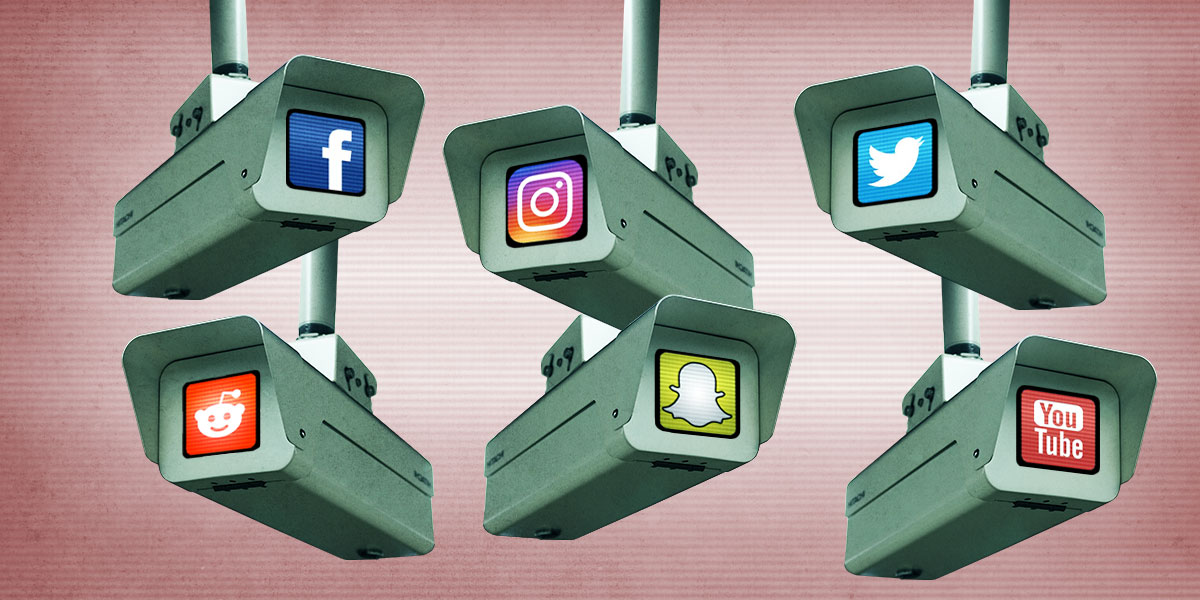In the age of digital connectivity, social media has become an integral part of our lives. From keeping in touch with family and friends to sharing personal thoughts and milestones, social platforms like Facebook, Instagram, Twitter, and TikTok offer a space for self-expression. However, as much as we willingly share online, the reality is that these platforms can also be a window into our private lives, raising a critical concern: are our posts being used against us?
The Digital Footprint: More Than Just Posts
Whenever we share a photo, comment on a post, or like a status, we leave a digital footprint behind. This data is not only accessible to our friends and followers but also to tech companies, advertisers, and, in some cases, governments or law enforcement agencies. Social media platforms are designed to collect and analyze user data to improve user experience and increase engagement. However, this data can also be used in ways we might need to fully understand or expect.
When we post on social media, we might think we only share with our immediate circle, but the reach can be far broader. Algorithms track and use our behavior to serve personalized ads, influence content recommendations, and predict our future actions. While these tools are primarily used for marketing purposes, they also have the potential to be exploited for surveillance or monitoring, raising questions about privacy and control.
How Social Media Data Is Used
Social media platforms gather a vast amount of data—everything from where you are, who you interact with, what you’re interested in to your emotional state based on your posts and photos. This information is highly valuable, and businesses and marketers use it to tailor ads and campaigns to target individuals more effectively. For example, if you post frequently about traveling, you may see ads for vacation packages, hotels, or flight deals.
However, it’s more than just advertisers who are interested in this data. In some cases, law enforcement agencies or private investigators can use social media as a tool for surveillance. For example, during criminal investigations, police may review an individual’s online activity to track their movements, uncover potential connections, or gather evidence. Similarly, some employers use social media to screen job applicants, evaluating their personal lives and opinions before hiring.
The Risks of Oversharing
One of the primary risks of social media is oversharing. While it’s easy to get caught up in the moment and share every detail of our lives, this information can be used in ways we don’t anticipate. For instance, revealing your location in real time through check-ins or posts can alert others to your whereabouts, potentially making you a target for theft or harassment. Additionally, posting about personal struggles, such as mental health issues or relationship problems, can be used against you by malicious individuals or organizations.
In legal matters, social media posts can be used as evidence. Family law cases, for example, have seen social media evidence used to undermine someone’s credibility, such as proving infidelity or financial irresponsibility. Even seemingly harmless posts can be misconstrued or taken out of context to support arguments in legal disputes.
Privacy Settings and Protection
While social media platforms provide privacy settings that allow users to control who can see their posts, these controls could be more foolproof. Sometimes, data may still be accessible to third parties, even if you’ve set your account to “private.” Additionally, the terms of service of many social media platforms include clauses that grant them broad rights to use your data for advertising and other purposes. It’s crucial to regularly review privacy settings and be mindful of what you’re sharing online.
One step toward protecting your privacy is limiting what you share publicly. Consider whether every post needs to be visible to everyone or if it can be shared with a select audience. Avoid posting sensitive information, such as your current location, travel plans, or personal struggles, which could be exploited. It’s also a good idea to periodically audit your social media accounts to ensure that old posts you may have forgotten about are inaccessible to others.
The Future of Social Media Surveillance
As technology evolves, so too does the potential for surveillance. Artificial intelligence and facial recognition technology are making it easier for governments, corporations, and even malicious actors to track and monitor individuals through their social media activity. The ability to analyze massive amounts of data in real-time makes it increasingly difficult to maintain privacy in the digital age.
While social media platforms are a powerful tool for connection and self-expression, they also come with significant privacy risks. As users, it’s crucial to stay informed about how our data is being used and take steps to protect ourselves from unwanted surveillance or exploitation. By being mindful of what we share, regularly reviewing privacy settings, and understanding the implications of our digital footprint, we can navigate the world of social media with more awareness and control. Ultimately, the key to protecting our privacy lies in recognizing that every post we make has the potential to be used against us in ways we may not always foresee.




